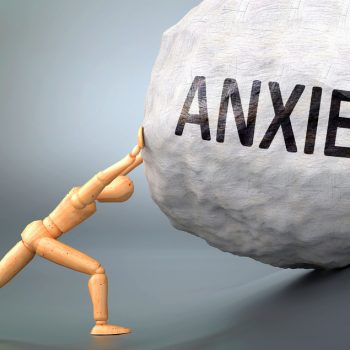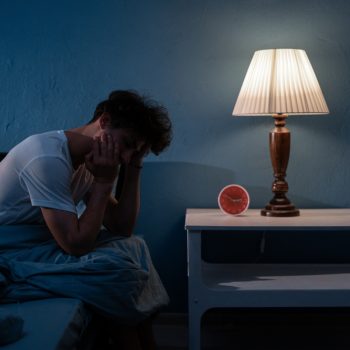The Surprising Link Between Sleep Apnea and Mental Health
Sleep apnea is a common sleep disorder that affects millions of people worldwide. While the physical symptoms of sleep apnea, such as snoring and daytime fatigue, are well-known, the impact it can have on mental health is often overlooked. Sacramento, CA, sleep specialist, Dr. Scott Grivas, of Sac Sleep and Breathing explains the connection between sleep apnea and various aspects of mental health.
Learn how addressing sleep apnea can help improve overall psychological well-being by reading the guide below, or calling our Sacramento sleep practice at (916) 735-4060.
Understanding Sleep Apnea
Sleep apnea is a condition characterized by repeated interruptions in breathing during sleep. The most common form, obstructive sleep apnea (OSA), occurs when the airway becomes blocked, usually when the soft tissue in the back of the throat collapses during sleep. These pauses in breathing can last from a few seconds to minutes and may occur 30 times or more an hour.
The Impact of Sleep Apnea on Mental Health
The chronic sleep disruption and oxygen deprivation associated with sleep apnea can have far-reaching consequences on mental health. Research has shown that people with sleep apnea are more likely to experience various mental health issues:
Major Depressive Disorder
There is a strong link between sleep apnea and depression. Individuals with untreated sleep apnea may have up to higher odds of experiencing depression compared to those without the condition. The chronic sleep disturbances and lack of oxygen associated with sleep apnea can contribute to feelings of sadness, hopelessness, and a general lack of interest in daily activities.
Anxiety
Sleep apnea patients have been found to have higher odds of experiencing anxiety disorders. The constant worry about their ability to breathe during the night and the fear of potential health consequences can lead to increased anxiety and panic. Additionally, repeated awakenings during sleep can trigger a stress response in the body, further exacerbating anxiety symptoms.
Cognitive Impairment
Sleep apnea can negatively impact cognitive function, making it harder for individuals to concentrate, remember information, and make sound decisions. This can have a significant effect on their work performance, personal relationships, and overall quality of life. The cognitive deficits associated with sleep apnea are thought to be related to both sleep fragmentation and intermittent hypoxia (low oxygen levels).
Mood Disorders
In addition to depression and anxiety, sleep apnea has been linked to other mood disorders. The disruption in sleep and oxygen levels can exacerbate the symptoms of these psychiatric disorders. For instance, individuals with untreated sleep apnea have higher odds of experiencing severe psychological distress.
Suicidal Ideation
Alarmingly, untreated sleep apnea has been associated with a higher likelihood of experiencing suicidal thoughts. This underscores the serious impact that sleep apnea can have on mental health and overall well-being.
The Bidirectional Relationship Between Sleep Apnea & Mental Wellness
The relationship between sleep apnea and mental wellness is often bidirectional. While sleep apnea can contribute to the development or exacerbation of mental health issues, existing psychiatric disorders can also increase the risk or severity of sleep apnea.
Weight Gain
Certain medications used for the treatment of psychiatric disorders, including many antidepressants and antipsychotics, can lead to weight gain, significantly increasing the risk of sleep apnea. This weight gain often results from increased appetite, changes in metabolism, and hormonal alterations affecting hunger signals.
Even a modest increase in body weight can dramatically elevate the likelihood of developing sleep apnea, especially obstructive sleep apnea. For those already diagnosed, additional weight can worsen symptoms and may require adjustments to treatment plans.
Muscle Relaxation
Medications used to treat anxiety and major depressive disorder can cause increased muscle relaxation, which may exacerbate airway collapse during sleep. Benzodiazepines and some sedating antidepressants can relax pharyngeal muscles, leading to greater airway collapsibility.
This reduction in muscle tone in the throat can increase the frequency of obstructive sleep apnea events. The timing of medication intake is crucial; taking these medications close to bedtime may enhance their impact on nighttime muscle tone. This can lead to the development of obstructive sleep apnea syndrome, or more severe obstructive sleep apnea symptoms.
Sleep Architecture Changes
Mental health conditions such as depression and anxiety can disrupt normal sleep architecture, increasing the risk of sleep-disordered breathing. Depression often leads to increased REM sleep and decreased slow-wave sleep, which can heighten the occurrence of apnea events.
Anxiety may cause more frequent awakenings and lighter sleep stages, further disrupting sleep cycles. Conditions like PTSD (post-traumatic stress disorder) can also exacerbate these issues through nightmares and heightened arousal responses that affect breathing.
Lifestyle Factors
Mental health issues frequently lead to lifestyle changes that can worsen sleep apnea. Reduced motivation for physical activity due to depression or anxiety contributes to weight gain and decreased cardiovascular fitness, both of which are risk factors for obstructive sleep apnea syndrome and other apneas.
Additionally, individuals may turn to alcohol as a coping mechanism; however, alcohol consumption relaxes upper airway muscles and can suppress arousal responses to apnea events. Irregular sleep schedules and chronic stress associated with mental health conditions can further disrupt normal breathing patterns during sleep.
The Importance of Seeking Sleep Apnea Treatment
Recognizing the connection between sleep apnea and mental wellness is crucial, as it can lead to a better understanding of the underlying causes of mental health issues and more effective treatment approaches. Treating sleep apnea can have significant positive effects on mental health:
- Improved Mood: Many patients report improvements in mood and reduced symptoms of depression and anxiety after beginning treatment for sleep apnea.
- Enhanced Cognitive Function: Treatment for a sleep-related breathing disorder can help improve attention, memory, and overall cognitive performance.
- Better Quality of Life: Addressing sleep apnea can help improve energy levels, sleep quality, and quality of life.
- Reduced Risk of Mental Health Complications: Proper treatment of sleep apnea may help reduce the risk of developing or worsening mental health problems.
Treatment Options
The primary treatment for moderate to severe sleep apnea is Continuous Positive Airway Pressure (CPAP) therapy. CPAP therapy helps keep the airway open during sleep, reducing the number of breathing interruptions and improving oxygen levels. This can have a significant positive impact on mental health, as patients often report feeling more rested, alert, and better able to manage their emotions and cognitive function.
In addition to continuous positive airway pressure therapy, other treatment options may include:
- Lifestyle changes, such as weight management and exercise, can help reduce sleep apnea severity.
- Avoiding alcohol and smoking, as these substances can worsen sleep apnea, especially obstructive sleep apnea, by relaxing throat muscles.
- Positional therapy involves techniques to avoid sleeping on your back.
- Oral appliances, including the Vivos appliances offered by Dr. Grivas, can help reposition the jaw and tongue to keep the airway open during sleep.
- Surgical interventions, in some cases, can help when other treatments have not been effective.
Frequently Asked Questions
How does sleep apnea affect mental health in children?
Sleep apnea can have a profound impact on the mental health of children as well. Children with sleep apnea may experience difficulties with attention, hyperactivity, and behavioral problems.
They may also be more prone to mood disorders, such as depression and anxiety. Dr. Grivas at Sac Sleep & Breathing in Sacramento can work with families to identify and treat sleep apnea in children, helping to improve their overall mental and physical well-being.
Can sleep apnea lead to memory problems?
Yes, sleep apnea can significantly impact memory and cognitive function. The chronic sleep disturbances and lack of oxygen associated with sleep apnea can interfere with the brain’s ability to form new memories and retrieve existing ones.
This can make it challenging for individuals to remember important information, complete tasks, and concentrate on daily activities. Seeking treatment with Dr. Grivas at Sac Sleep & Breathing in Sacramento can help improve cognitive function and memory.
Is there a link between sleep apnea and substance abuse?
Research has shown a potential connection between sleep apnea and substance abuse. Individuals with untreated sleep apnea may turn to drugs or alcohol as a means of coping with excessive daytime sleepiness, mood changes, and other symptoms associated with the condition.
Addressing the underlying sleep apnea with the help of Dr. Grivas at Sac Sleep & Breathing in Sacramento can be an important step in breaking the cycle of substance abuse and improving overall mental health.
Can sleep apnea contribute to the development of Alzheimer's disease?
There is growing evidence that sleep apnea may be a risk factor for the development of Alzheimer’s disease. The chronic lack of oxygen and sleep disturbances associated with sleep apnea can lead to brain changes that are linked to the onset and progression of Alzheimer’s.
Dr. Grivas at Sac Sleep & Breathing in Sacramento emphasizes the importance of early diagnosis and treatment of sleep apnea, as this may help mitigate the risk of cognitive decline and neurodegenerative diseases.
Protect Your Mental Health, Call Now!
The link between sleep apnea and mental wellness is clear and significant. Addressing sleep apnea through proper diagnosis and treatment can lead to substantial improvements in mental wellness and overall quality of life.
If you or a loved one are experiencing sleep apnea symptoms, such as loud snoring, daytime fatigue, or mood changes, contact Sac Sleep and Breathing by dialing (916) 735-4060. We proudly serve Sacramento and surrounding areas such as Sierra Oaks, Woodside Condo, and Campus Commons, CA. Early intervention can make a significant difference in both physical and mental well-being.
